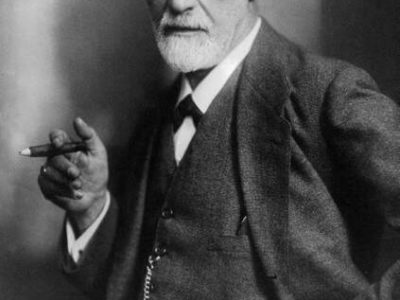by Lauren Simenauer > Sex & Dating Blogger
Evolutionary psychologists at the University of Illinois have bad news: Freud was right, and you’re totally into your mom.
In 1891, Edward Westermarck translated the “ick-factor” of incest into scientific terms: he proposed the Westermarck theory, which asserted that children are sexually desensitized to individuals in their immediate surroundings. Westermarck’s theory sought to account for how a mechanism would evolve wherein organisms would avoid mating with their relatives. Such an adaptation might be favorable due to the often-mortal consequences of inbreeding, which sometimes prevent progeny from reaching sexual maturity.
However, R. Chris Fraley and Michael J. Marks have published experiments in the Personality and Social Psychology Bulletin that suggest that an aversion to incest might just be a social construct, and that humans do, subliminally, find their relatives sexually attractive. Fraley and Marks conducted three experiments to evaluate familial attraction. In the first, they asked volunteers to rate the attractiveness of strangers. Before showing the participants the images, however, researchers flashed a picture of their opposite-sex parent on the screen.
A statistically significant number of participants rated the strangers’ photographs as more attractive when primed with a picture of their opposite-sex parent than with a picture of someone else’s opposite-sex parent.
In the second experiment, participants were asked to rate the attractiveness of strangers’ faces that had been morphed with their own. Again, the participants rated the faces that shared their own features higher than faces that were morphed with other strangers’ faces. The third experiment involved informing the participants that their likenesses were morphed with strangers’ faces. According to Westmarckian theory, the participants who were told that researchers used their pictures should have found the representations equally as repulsive as participants who were not aware. However, Fraley and Marks found that the participants who were informed of their likenesses rated the pictures as less sexually appealing than those participants who were unaware that their own faces were used in morphing.
Fraley and Marks acknowledge, however, that many studies point to a decrease in sexual attraction among people who are familiar with one another. Using their findings, Fraley and Marks suggest that instead of a Westmarckian evolutionary mechanism to detect relatedness, related individuals do not mate due to sexual habituation—that is, after some time, sexual “passion” wanes, just as it is shown to in any relationship. If their research accomplishes anything, Fraley and Marks said, they hoped to re-ignite the century-dead debate between Freud and Westmarck that researchers claim Westermarck prematurely won.



















